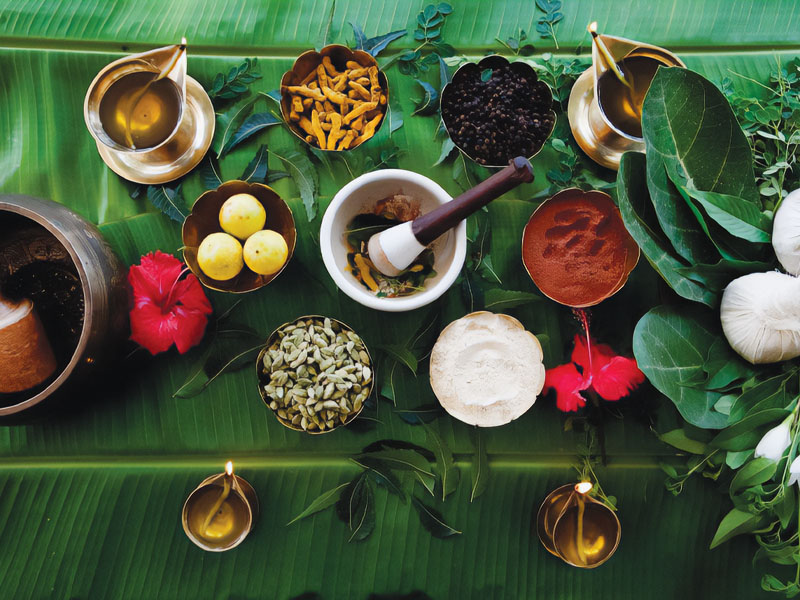Traditional Medicine of Muslims in the Indian State of Kerala
Issue 47

Dr. Muhammad Ali Al Wafi Kurwatil, scholar, India
The ancient scholars in the State of Kerala had great knowledge of traditional medicine and healing and therapeutic methods. Two masters in the Sayidayn family, are amongst those scholars, and treat people with faith and prophetic medicine. People turned to their scholars for health issues and treatment, as well as for religious matters. They used to seek solutions for both physical and spiritual problems from their scholars and masters.
Scholars and masters relied on traditional medicine inherited from their predecessors and ancestors, and on the sciences they learned from the books of traditional and Greek medicine. There are also scholars who rely on the medical sciences that came from Persian methods of healing such as using holy names and talismans. People believed that that type of treatment was purely Islamic.
The Muslims in Kerala were encouraged to learn and develop medical sciences by their religious studies as well as their daily experiences and harsh living conditions (which often resulted in pain and disease). They provided invaluable advice and guidance in the field of preventive medicine. They have written about medical sciences as much as they did about other sciences, but only a few traces of their contributions and medical literature have been preserved. Most of their medical publications were written in the local language Malabari, however some of their works were written in classical Arabic.
All of this is indicative of the efficiency, skill, superiority and distinction of Muslim scholars in the medical sciences, despite the shortage of diagnostic means and the primitive therapeutic methods that prevailed in their time. The only problem facing Malabari traditional medicine is that it has not been subjected to sufficient scientific experiments, which modern medicine has. Traditional medicine was not, for example, applied to animals before it was used on humans. Moreover, some of its methods were not taught in regular schools, but were rather passed on to scholars and masters in Kerala by their parents and grandparents.




































































